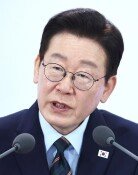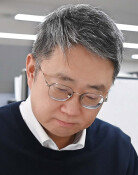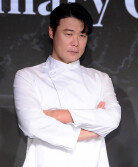[Opinion] A Time for Provincial Culture Has Suddenly Dawned
[Opinion] A Time for Provincial Culture Has Suddenly Dawned
Posted October. 29, 2001 09:08,
![[Opinion] A Time for Provincial Culture Has Suddenly Dawned](https://dimg.donga.com/egc/CDB/ENGLISH/Article/20/01/10/29/2001102994508.jpg)
There is something that you clearly feel when you travel outside the country. There aren`t that many places in the world where the natural environment is as beautiful and pure as ours. We may have problems in making the human environment habitable but the natural one is a jewel among any nation. Traveling on a train and watching the plain and rivers unfolding like a piece of art, one feels again the beauty of our land.
Yet, as the capitol is suffocating with the ceaseless population increase, many people living in Seoul only think about moving back to the country but are not able to make the actual move. The biggest reasons for this is, of course, the job and the children`s education.
However, even the people who are held down by such obligations cannot easily leave Seoul.
Another reason is that there is so much cultural life centered in Seoul. Our society has attained a high level of educated work force for quite some time now and we have for the most part resolved the problem of feeding and housing people. We are no longer satisfied unless our need for culture is satisfied. Musical performance centers, art museums, theatres and other cultural centers are all concentrated in Seoul. If people living in the provinces want to watch a play or go to an exhibit, it is impossible to do that without going to Seoul.
Things like health care and such are not that different in Seoul or the provinces nowadays. But the cultural gap between the singular center of Seoul and the provinces has not been bridged well.
However, in my travels here and there throughout the past several years, I have often rejoiced in the thought that it is possible to establish a cultural environment similar to Seoul in the provinces as well.
For example, when I went to Kyungnam, Tong-young, I felt a cultural and artistic atmosphere that one cannot sense in Seoul. The city, of course, is famous for producing many literary figures and artists, but the city as a whole exudes an artistic air.
I visited the literary center for Yoo Chi-Hwan who cried to the Tado sea, `You waves, what do you ask of me` walked the Yoon Yi-Sang street named after the composer and arrived at a world-class sculpture garden. I felt as if I had come to some city in southern Europe with a deep history.
At Chunnam Jindo next to the ocean waters, I saw a rare shaman ritual performance at the cultural center, which seats hundreds, and at the foot of the Chiri mountains, near Chunbook Namwon classical Korean music center, I heard the sounds of Dongpyonjae pansori. I cannot express in words how much the performance and the music moved me.
In the Hoban city of Kangwon, Choonchun, the International Mime Festival takes place every year and is an opportunity to see a master performance which is hard to come by even in Seoul.
Every summer, like the French Avignon theatre club, the international drama club hosts a performance in Kyoungnam which is also a unique experience.
What a joy it is to see that people are starting to leave Seoul and go to the provinces just to see these performances. With local communities in the Korean provinces noticing the importance of their cultural and artistic resources, the time for provincial culture is about to take a leap.
Recently, in Chungnam Kumsankun, the internationally renowned French architect, Bill Mott was hired with the planning of a public center for culture and the arts. The center will have a 800 seat theatre and an exhibition hall.
I recall the words that the governor of Kumsan said to me when I met him recently, ``Soon Kumnsankun will host a cultural festival whose reputation will match the British Royal Ballet or the Picasso special exhibit. So, please come when you get the invitation.`` I wait with eager longing for that dream-like day to come.
At that time, many people will start leaving Seoul and moving to the provinces. May be the congestion problem in Seoul will be naturally resolved.
Kim Byoung-Jong (Artist, Seoul National University Professor, Guest editorial writer for Donga Ilbo)



![[단독]폴란드, 韓 해군 최초 잠수함 ‘장보고함’ 무상 양도 안받기로](https://dimg.donga.com/c/138/175/90/1/wps/NEWS/IMAGE/2026/02/27/133437397.1.jpg)



